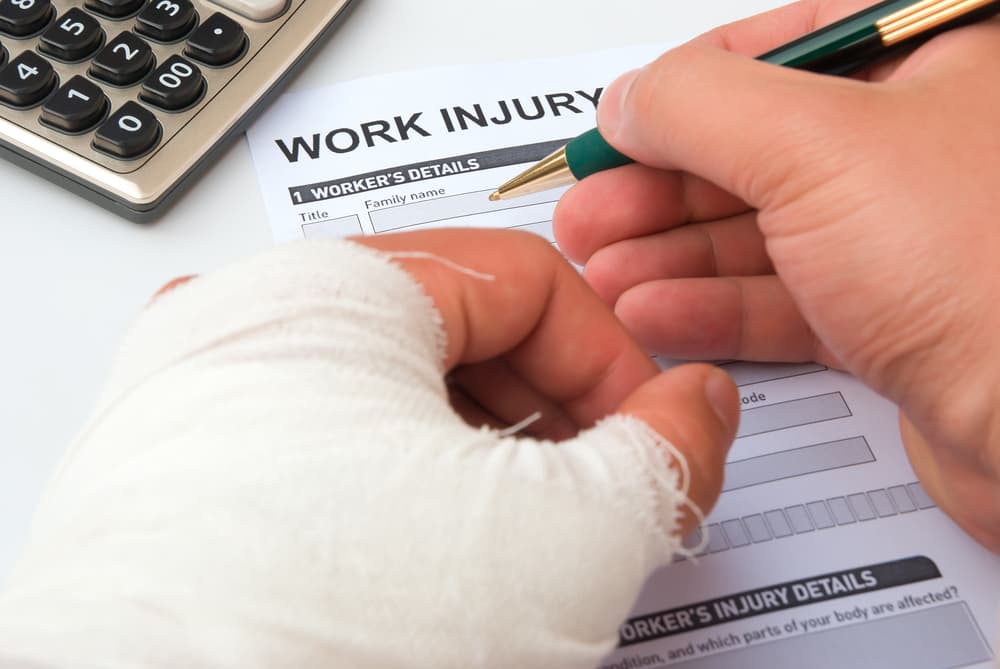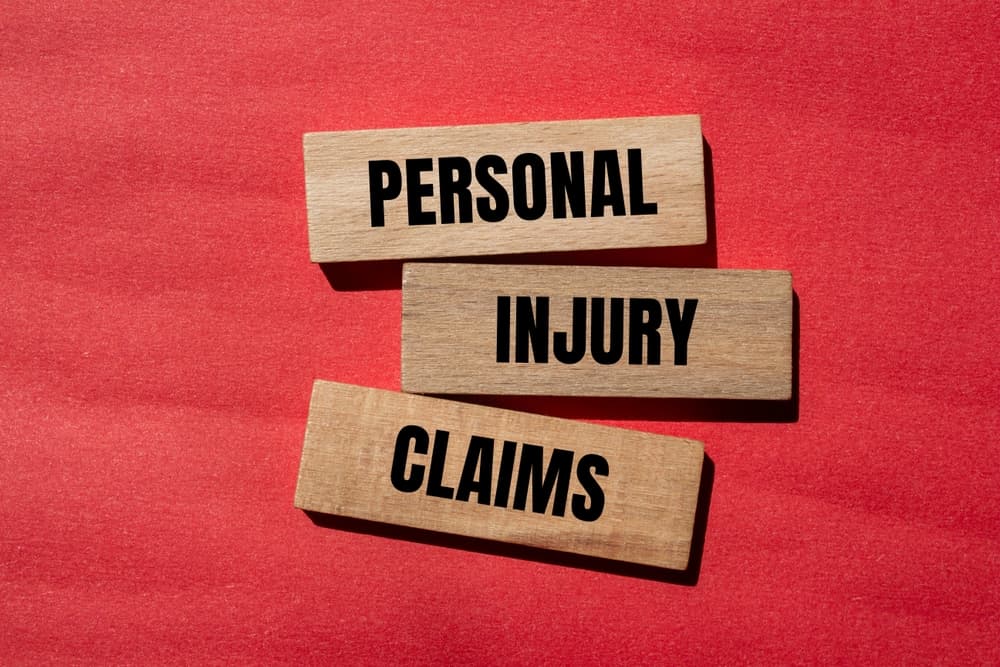If you’ve suffered an injury in an accident, you may find yourself dealing with insurance companies that don’t seem to have your best interests at heart. One common tactic they use is making lowball settlement offers that don’t come close to covering your expenses and losses. This can leave you feeling frustrated and unsure of what to do next.
Before you consider accepting any offer, it’s important to understand why insurance companies use this strategy and how a Fort Worth personal injury lawyer can help protect your rights. Don’t hesitate to contact a personal injury lawyer who can evaluate your case and fight for the full compensation you deserve.
Schedule A Free Case Consultation
Table of contents
- The First Steps After an Injury
- Why Do Insurance Companies Lowball Injury Victims?
- How Do Insurance Companies Determine Settlement Offers?
- What Are Some Signs of a Lowball Offer?
- What Should You Do If You Receive a Lowball Offer?
- How Can a Personal Injury Lawyer Help?
- Why Do Insurance Companies Often Settle for More When a Lawyer is Involved?
- What Factors Influence the Value of Your Injury Claim?
- How Long Does it Take to Settle a Personal Injury Claim?
- Don’t Settle for Less Than You Deserve, Call an Attorney Today
The First Steps After an Injury
After seeking medical care for your injuries, one of your top priorities should be speaking with a personal injury attorney. They can guide you through the often confusing process of dealing with insurance companies and pursuing fair compensation. A personal injury lawyer will work to understand how your injury has impacted your life and build a strong case on your behalf.
Why Do Insurance Companies Lowball Injury Victims?

Insurance companies are businesses focused on making money. They protect their bottom line by paying out as little as possible on injury claims. When they make a lowball offer, they hope you’ll accept it without realizing the true value of your claim.
There are a few key reasons insurance companies use this tactic:
To Take Advantage of Your Vulnerability
Right after an accident, you may be dealing with pain, medical bills, lost income, and other stressors. Insurance companies know this and may try to pressure you into making a quick settlement before you’ve had time to assess your damages fully or speak with a personal injury attorney.
To Avoid Paying the Full Amount You Deserve
By offering a low amount upfront, insurance companies are betting that many people will accept it rather than go through a longer claims process. Even if only some people take the lowball offer, it saves the company money.
To Discourage You From Seeking Legal Help
Insurance companies know that people who work with personal injury lawyers tend to receive higher settlements. By making a quick offer, they hope to settle your claim before you have a chance to consult an attorney who can advocate for your rights.
To Set a Low Starting Point for Negotiations
Even if you reject their first offer, starting with a very low number can anchor future negotiations. This makes it harder to get to a truly fair settlement amount.
How Do Insurance Companies Determine Settlement Offers?
You might wonder how insurance companies come up with the settlement amounts they offer. While every case is different, there are some common factors they consider:
Medical Expenses
Insurance adjusters will look at your current medical bills related to the accident. However, they may not fully account for ongoing or future medical needs stemming from your injury.
Lost Income
They’ll consider income you’ve already lost due to missing work. However, they may undervalue or ignore how your injury can impact your future earning capacity.
Pain and Suffering
This is harder to put a number on, which is why insurance companies often try to minimize it. They may use formulas that don’t truly capture the full impact of your injuries on your quality of life.
Policy Limits
The at-fault party’s policy limits will cap the maximum payout. However, insurance companies rarely offer the full policy limit without significant pressure.
Strength of Your Claim
If liability is clear-cut, you may receive a higher initial offer. But insurance companies will look for any ways to argue shared fault or downplay the severity of your injuries.
What Are Some Signs of a Lowball Offer?
It’s not always easy to recognize when an insurance company is shortchanging you, especially if you don’t have experience with personal injury lawsuits or claims. Here are some red flags that may indicate you’re dealing with a lowball offer:
The Offer Comes Very Quickly
If you receive a settlement offer before you’ve finished medical treatment or had time to fully assess your damages, it’s likely too low. Insurance companies sometimes rush to make an offer, hoping you’ll accept it before realizing the full extent of your losses.
It Doesn’t Cover All Your Expenses
A fair settlement should cover all accident-related costs, including current and future medical bills, lost income, and other damages. If the offer leaves you paying out of pocket for expenses caused by the accident, it’s probably inadequate.
The Adjuster Pressures You to Accept Quickly
Be wary if the insurance company pushes you to make a fast decision or claims the offer is only good for a limited time. This is often a tactic to get you to accept before consulting a personal injury lawyer.
They Dismiss Your Pain and Suffering
While economic damages like medical bills are easier to calculate, your pain and suffering are also a valid part of your claim. If the insurance company ignores or severely undervalues this aspect, their offer is likely too low.
They Refuse to Explain Their Calculations
A fair offer should include an explanation of how it was determined. If the insurance company doesn’t break down its offer or justify the amount, it may be because it knows it’s unfairly low.
What Should You Do If You Receive a Lowball Offer?
If you believe the insurance company has made an unfair settlement offer, don’t panic. You have options and don’t have to accept their first proposal. Here are some steps you can take:
Don’t Accept the Offer Right Away
Once you accept a settlement, you typically can’t go back and ask for more money, even if you later realize the amount was insufficient. Take time to carefully consider any offer before responding.
Seek a Professional Opinion
This is an ideal time to consult with a personal injury attorney if you haven’t already done so. They can review the offer and your case details to determine if it’s fair or if you should negotiate for more.
Gather More Evidence
Collect all documentation related to your accident and injuries if you haven’t already. This includes medical records, bills, proof of lost earnings, and other evidence showing the full extent of your damages.
Prepare a Counteroffer
With the help of a personal injury lawyer, you can craft a counteroffer that more accurately reflects your losses. This should include a detailed explanation of why you deserve a higher amount.
Be Patient
Negotiating a fair settlement can take time. Don’t let the insurance company rush you into a decision you’re uncomfortable with.
Consider Legal Action
If the insurance company refuses a fair offer, you may need to file a lawsuit. A personal injury lawyer can guide you through this process and continue negotiating on your behalf.
Schedule A Free Case Consultation
How Can a Personal Injury Lawyer Help?
Dealing with insurance companies after an injury can be overwhelming, especially when they’re not offering a fair settlement. This is where a personal injury lawyer becomes priceless. Here’s how they can support you:
Evaluate Your Claim
A personal injury lawyer has the experience to accurately assess the value of your claim. They’ll consider all your damages, including future expenses and non-economic losses like pain and suffering.
Handle Communications
Once you have a personal injury lawyer, they can oversee all communications with the insurance company. This protects you from saying anything that can hurt your claim and relieves you of the stress of dealing with adjusters.
Gather and Present Evidence
Your personal injury lawyer will know what evidence is needed to support your claim and how to present it effectively. This might include obtaining professional testimony, accident reports, and detailed medical records.
Negotiate Skillfully
Personal injury lawyers are trained negotiators who understand insurance company tactics. They can resist lowball offers and persuasively advocate for a fair settlement.
Why Do Insurance Companies Often Settle for More When a Lawyer is Involved?
You might wonder why having a personal injury lawyer can make such a difference in your settlement amount. There are several reasons for this:
Legal Knowledge
Personal injury lawyers understand the laws that apply to your case and know how to use them to your advantage. Insurance companies are less likely to try legal maneuvers that won’t hold up in court.
Case Valuation Experience
Lawyers who are skilled in personal injury cases have seen many similar situations. They have a good sense of what cases are worth and will not be fooled by lowball offers.
Resources for Building Strong Cases
Personal injury lawyers have networks of professionals they can call on to strengthen your case. This might include medical professionals, accident reconstruction specialists, or economists who can testify about your losses.
Negotiation Skills
Personal injury lawyers negotiate with insurance companies every day. They know the tactics adjusters use and how to counter them effectively.
Focus on Your Best Interests
Unlike insurance adjusters who aim to save their company money, your personal injury lawyer focuses on protecting your best interests. They prioritize your needs and fight to secure the compensation you deserve.
What Factors Influence the Value of Your Injury Claim?
Understanding what goes into valuing a personal injury claim can help recognize when an offer is too low. While every case is unique, here are some key factors that typically influence claim value:
Severity of Injuries
More serious injuries requiring extensive treatment or permanent disability generally lead to higher settlements. This is because they have a greater impact on your life and future.
Medical Expenses
Your claim should cover all accident-related medical costs, including future expected expenses. This might include surgeries, physical therapy, medication, and adaptive equipment.
Lost Income
If your injury caused you to miss work or reduced your earning capacity, this should influence your settlement amount. For serious injuries, this might include calculations of lost future earnings.
Impact on Quality of Life
If your injury prevents you from enjoying hobbies, participating in family activities, or living independently, this should play a role in your settlement.
Clarity of Liability
When the fault for the accident is clear-cut, insurance companies may be more willing to offer higher settlements. If someone disputes liability, it can impact the value of your claim.
Insurance Policy Limits
The at-fault party’s insurance policy limits can cap the amount available for your settlement. However, in some cases, there may be other sources of compensation to pursue.
Your Actions After the Accident
Following through with medical treatment, keeping good records, and avoiding social media posts about your accident can all help preserve the value of your claim.
How Long Does it Take to Settle a Personal Injury Claim?

People sometimes accept lowball offers because they’re eager to resolve their claims quickly. While wanting a fast resolution is understandable, rushing the process often results in unfair settlements. Here’s what you should know about the timeline of a personal injury claim:
Every Case is Different
Some cases might settle in a few months, while more complicated ones can take a year or longer. Factors like the severity of your injuries, clarity of liability, and insurance company cooperation all play a role.
Medical Treatment Comes First
It’s usually best to wait until you’ve reached maximum medical improvement before settling. This ensures you understand the full extent of your injuries and future medical needs.
Negotiation Takes Time
Your personal injury lawyer will likely go through several rounds of negotiation with the insurance company. This back-and-forth process can take weeks or months.
Litigation May Extend the Timeline
You may need to file a lawsuit if negotiations don’t lead to a fair settlement. While most cases settle before trial, the litigation process can add months or even years to your timeline.
Patience Often Pays Off
While waiting can be frustrating, allowing the process to play out often results in higher settlements. Your personal injury lawyer can help weigh the pros and cons of settling versus continuing to negotiate or pursuing mediation or arbitration.
Don’t Settle for Less Than You Deserve, Call an Attorney Today
If you’ve suffered an injury and are dealing with insurance companies, don’t hesitate to seek professional legal help. A personal injury attorney can evaluate your case, handle negotiations, and fight for your rights, allowing you to focus on your recovery. Reach out to a personal injury lawyer today to discuss your case and learn about your options for pursuing fair compensation.
